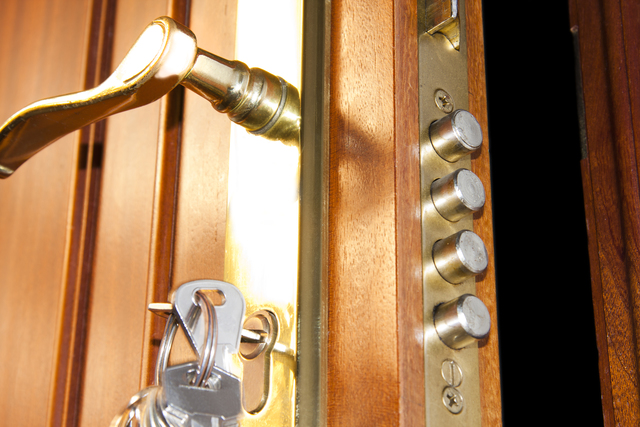Helpful Advice From The Flying Locksmiths On Maintaining Your Locks

If you are like most people, you probably take the locks on the doors of your home or office for granted until they suddenly stop working. Once they break, however, it quickly becomes apparent how much you rely on them. Because of that, it is important to get them repaired as quickly as possible.
Unfortunately, when it comes to a broken lock on an office door, you have little choice but to wait for a local locksmith to arrive to fix it. You definitely don’t want to leave the building unlocked overnight or after hours.
The best way to avoid finding yourself in just such a predicament is to regularly maintain your lock. The following lock maintenance tips will help.
Maintaining Your Locks Starts With Proper Lubrication
One of the most important things you can do to prolong the life of your locks is to take action right away when you notice a problem. For instance, if you find that the key won’t turn easily in the lock or that it is hard to get into the keyhole, you may want to try lubricating the hole.
Locks are made up of countless different moving parts that need to be able to slide easily past one another in order for the lock to open or close. With proper lubrication, these parts can move freely the way they were intended to.
It is important to put the lubricant in the right part of the lock. Check out the visual guide that shows precisely where you should apply the lubricant.
Lubricating the keyhole of the lock will help ensure that the pins and springs are free to move around without friction standing in their way. Don’t worry about using too much lubricant. Just try to get as much into the lock as you can.
Push your key in and out of the lock a few times to make sure that the lubricant is thoroughly spread throughout the chamber. It may also be beneficial to apply lubricant to other parts of the lock such as the bolt and latch. This can help ensure that all of the parts are able to move smoothly.
Adjusting The Hinges
 Door hinges undergo a lot of strain over the course of their life. Eventually, after countless times of the door opening and closing, they may start to slip. This can result in improper alignment.
Door hinges undergo a lot of strain over the course of their life. Eventually, after countless times of the door opening and closing, they may start to slip. This can result in improper alignment.
All of the screws in each hinge need to be individually tightened to pull the door back up where it should be again. You will most likely need a Phillips head screwdriver for the job. Don’t forget to tighten the screws on both the frame and the door itself.
Once everything is tight again, the lock should line up better with the strike. This will help prevent any problems with rubbing that could make the door challenging to open.
Bonus Tips
